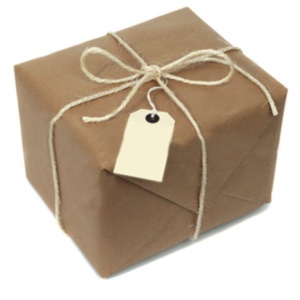There were some present at that very time who told him about the Galileans whose Blood Pilate hand mingled with their sacrifices. Luke 13:1
Perhaps they are trying to justify themselves by pointing to someone worse. “Jesus, did you hear what Pilate did in Jerusalem? There were these people—from right here in Galilee—there for the feast, and he ordered . . . and he killed . . and the blood flowing down the alter was their own!” The story may have lost some accuracy and picked up some lurid details on its way up from Judea, but it’s essentially true.
An outrage! Think some of the listeners—mostly the younger ones, like Simon the Zealot, whose lives are a parade of injustices that cry out to be made right. All too typical, think the older ones, who have seen tyrants come and go. The only interesting question is, how were those people unlucky enough to put themselves in the wrong place at the wrong time? What did they do to deserve that? (It’s not a rhetorical question.)
Jesus breaks into their thoughts. “’What did they do?’ That’s not the question. The question is, rather, what about you? Were those Galileans singled out for punishment because their wickedness was greater than yours? Not at all, but calamity could fall on you at any time, just like that tower in Siloam that collapsed and killed eighteen people. Don’t sit around observing this group or that and evaluating their righteousness: you’re not the judge.
“Just the opposite, in fact: you’re in the dock—just like those Galileans and the people rushed by the tower. It doesn’t matter if your end comes by an unjust act or a freak accident, or if you take to your own bed and never rise out of it—your day will come. The time to repent is now, before you face a judge much greater than Pilate.”
Ironically—perhaps—he knows he will face Pilate. And that time is not far off. His inner circle recognize that distant, brooding look that steals over his face—happens a lot lately—followed by the light, quick beat of his storytelling voice:
“A certain man had a fig tree . . .”
A breeze stirs the leaves of the fig tree behind him, as his audience leans in. No longer a “crowd,” but a diverse group of women, stragglers, professional men, scribes. These days, there are always a few scribes leaning in, listening closely, ready to lap up incriminating statements.
“He planted this tree himself, right in the middle of his vineyard, and took special care of it. He expected not just a beautiful tree, or a shady tree, but a fruitful tree. Wouldn’t you?”
He directed the question to one of the scribes, who nodded uncomfortably.
“But after the tree had matured—nothing. Sometimes it blossomed, but never bore. One year, two years, four, six—all it did was stand proudly in the middle of the vineyard, as though just being there justified its existence.
“’Look here,’ the owner said to his overseer. ‘This tree should have been pumping out figs for the last three years, but I’ve never found a thing. Why should it be taking up valuable space in my vineyard? Cut it down!’
“’Sir,’ answered the overseer, ‘give it one more year. I’ll aerate the soil and add some fertilizer. If nothing happens then, I’ll cut it down myself.’”
The end.
Many of the listeners probably found this rather abrupt. So . . . what happened after that? Did the tree stay, or go? Did the extra TLC make a difference, or not?
But the scribes and teachers of the law got it. The vineyard tipped them off: why plant a fig tree in a vineyard unless it’s supposed to represent God’s garden, God’s people—Isaiah’s metaphor. They knew the Song of the vineyard and the owner’s disappointment: He expected it to yield good grapes but it yielded worthless grapes (Is. 5:2). What more could I have done for my vineyard than I did? (vs. 4) Only one more thing could be done: Send a mediator who’ll say, “Let me try. One more year. One last chance. Are you listening, you leaders of my people?”
Unless you repent, you will all (small and great, wise and ignorant) perish.
For the original post in this series, go here.
Next>


